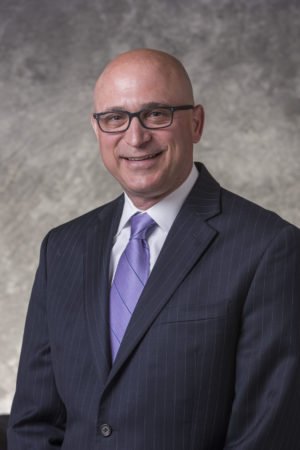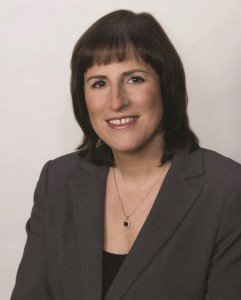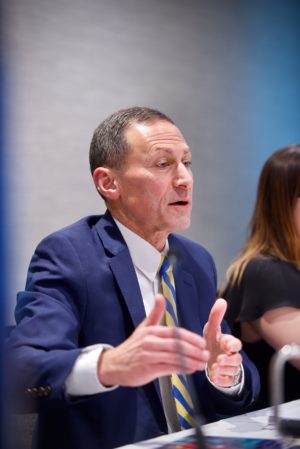Meet the Lawyers on the Front Lines of the Coronavirus Crisis
4.2.2020
Fatigued, overworked, under-resourced. These words describe not only the doctors and nurses on the front lines of the Covid-19 response; they also describe the lawyers in the public sector who are delivering new public safety measures and keeping essential services running in the midst of an unprecedented crisis.

“It is work-till-you-drop government,” said Stephen Acquario, executive director of the New York State Association of Counties. “Fifteen to twenty-hour days, not uncommon for local leaders and municipal attorneys as well, day in and day out giving counsel during the crisis.”
This pandemic is putting unique pressures on public sector lawyers across New York, who are working with state and local governments to maintain a delicate balance between protecting public safety, providing necessary services and preventing the spread of the coronavirus.
“The expectation from the public is that government is this well-oiled machine that’s just going to keep chugging no matter what’s thrown at it,” said Alexandra Obremski, principal assistant county attorney for Rockland County. “We are working very hard behind the scenes to meet all the challenges, the legal questions. Because we don’t really publicly interface with people, I don’t think people really know what we’re doing.”
In New York State, there have been 14 executive orders addressing the coronavirus crisis for the month of March. As Gov. Andrew M. Cuomo continues to issue these orders in an effort to mitigate the impacts of the crisis, lawyers in the public sector are having to keep pace with the flurry of new laws.
“The governor is instituting new law every day, so the challenge that we had was delivering the new law to the localities every day and then interpreting that new law back to the state and seeking clarification the next day,” said Acquario. “So, the cycle continues every day for the past two weeks.”
On Sunday, Gov. Cuomo extended the New York State “Pause” Executive Order, which calls for 100% of the workforce deemed “non-essential” to remain at home. The extension will last until at least April 15.
“These decisions that are being made here are a matter of life and death – how to implement mandatory isolation, mandatory quarantine and enforcing it such that if people were disobeying that law, now what?” said Acquario.
While public sector lawyers are scrambling to deliver new laws that keep non-essential workers in quarantine, they are also navigating how to protect essential service providers, exempt from the mandatory isolation, from contracting the virus.

“There’s just no playbook for what’s happened over the last couple weeks,” said Sharon Berlin of Lamb & Barnosky, who is also chair of NYSBA’s Local and State Government Law Section. “You want to have teams of people who are in at the same time so you’re not wiping out everybody at once. I spoke with one municipality that really had that problem, where they ended up with a very large portion of their workforce exposed.”
Some of the executive orders have reconstituted the use of public spaces. For instance, public schools across the state are still feeding hungry children through the free and reduced-price lunch provision, while at the same time now caring for young children of emergency response workers.

Jay Worona is the deputy executive director and general counsel for the New York State School Boards Association and is responsible for representing the roughly 750 school districts in its membership.
“In the past there have been legal questions. But now the answers to these legal questions will presumably put us on a greater path to preserve human life, and that’s an overwhelming responsibility for all of us,” said Worona. “I don’t want to hit my head on the pillow until I know that every one of these questions has been dealt with.”
“This is the most serious advice I can give to a public official or a municipal attorney: there is a time to be on duty, there’s a time to be off duty, and there’s a time to be out of service,” says Acquario. “They have got to sleep, they have got to recharge, and they’ve got to remind themselves why their role is so important.”



